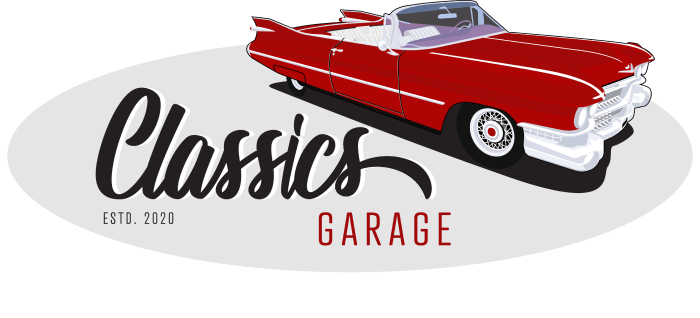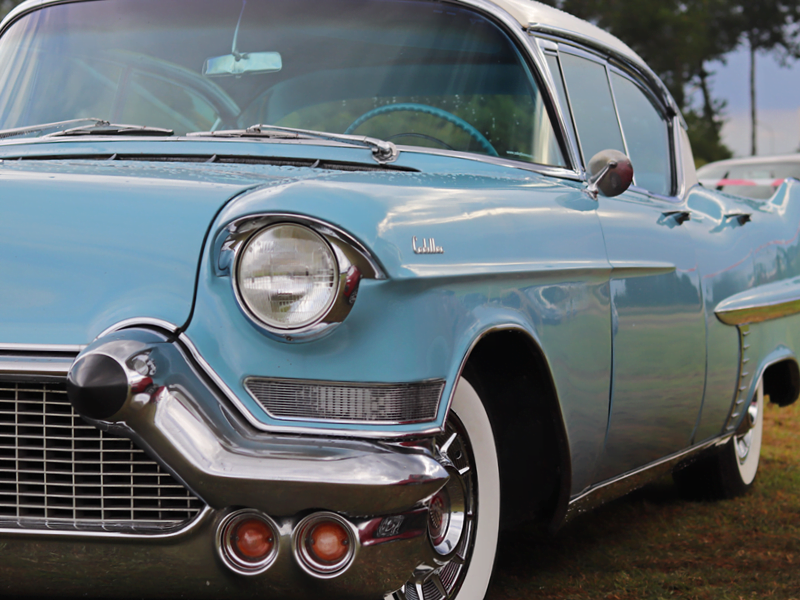If you’re thinking about shelling out and investing in a classic car, you’ll want a guarantee that it’s the real deal – so how do you ensure it’s authentic?
If you’re unfamiliar with this arena, the classic car market in Australia has low spreads and volatility, but with high liquidity. As a general rule, the prices are barely affected by supply and demand, as there’s simply not enough classic vehicles to go around – especially those considered to be of both high value and high quality.
Like it or not, rookie classic car collectors often get a swift reality check once they discover just how limited particular makes and models are. In demand classic cars will usually get snapped up quickly, even by serious interstate buyers who haven’t even laid eyes on the vehicle.
However, the value of any classic car lies in its authenticity. Even the most seasoned collectors can miss certain red flags that have the potential to devalue a classic car, so what key factors should buyers be on the lookout for?
What Makes A Classic Car Authentic
By definition, authenticity is when something is genuine, of undisputed origin, or simply not a fake. As such, the level of detail required for a classic car to be considered original can become pedantic. Even if a sticker is installed at the wrong angle, a classic car’s authenticity can be questioned. Thankfully, finding genuine classic cars that are true to their original form isn’t as big a minefield as it seems, providing you know what to look for.
For those who already own a classic car, it’s important that your actions don’t affect the car’s overall value. A classic car is more valuable without modern tweaks or modifications, so avoid deviating from the original look, feel and function whenever possible.
In order to preserve its authenticity, don’t take shortcuts when undertaking repairs. Avoid ordering parts that deviate from its original make and model, even if that means they are more expensive with a longer wait time.
For buyers on the hunt for a fully authentic classic car, it’s worth remembering that you often get what you pay for. At the affordable end of the classic car world are vehicles in poor condition, that have often lived a hard life and have had ‘donor’ parts installed to keep them going.
Moving to the pointy end of the market are the more expensive investments. Apart from looking physically pristine, high quality and authentic classic cars will still have all original items as from the factory with nothing out of place or non-standard.
Before making a purchase, be sure to check that all the numbers match on the classic car – and we don’t mean valuation. Inspect that the compliance plate on the car matches the stamped chassis and engine numbers, as these items would have been originally assigned to the car when it left the factory.
In addition, vehicles sold in Australia for road registration will have a compliance plate mounted in the engine bay with a record of the VIN, chassis and engine number. By using this as a guide, check the engine number on the block and the number stamped onto the vehicle’s chassis. If they don’t match, then more often than not, something is amiss.
To avoid purchasing a lemon, be sure to do your due diligence when buying a classic car through online classifieds. Classic car sales through these avenues are usually from private vendors though, and offer no protections like a follow up service or guarantees after purchase.
In contrast, a safer alternative for buying an authentic classic car is to use a reputable dealer. Not only does the dealer understand the nitty gritty and all of the unique things that come with classic cars, but it also provides buyers with an extra level of protection after the sale – but where do you find one?
Your Guide To Everything Classic Cars
Finding a fellow vintage auto enthusiast can feel a bit like finding a needle in a haystack, but rest assured that Classic’s Garage understands the thrill more than most. Having spent forty years collecting anything and everything from matchbox cars to hub caps, he’s successfully followed his passion to source, collect and stock beautiful and low mileage classic automobiles from around the world.
Although his passion is for automobiles built before 1978, with a particular love for Buicks, Cadillacs, Lincolns, Oldsmobiles and even Fords, Wayne is just as passionate about the stories of the owners. If it’s even remotely different, rare or just plain unusual, Wayne will overcome the relevant logistical and geographical challenges of bringing the cars to his showroom in Australia.
Classic’s Garage is a showroom conveniently located at Seventeen Mile Rocks, that specialises in the restoration and sales of vintage automobiles. If you’re on the hunt for Brisbane classic cars – quite simply, Wayne is your man. If you would like to arrange a viewing or inspect any other of our classic vehicles, please get in touch with us today.

